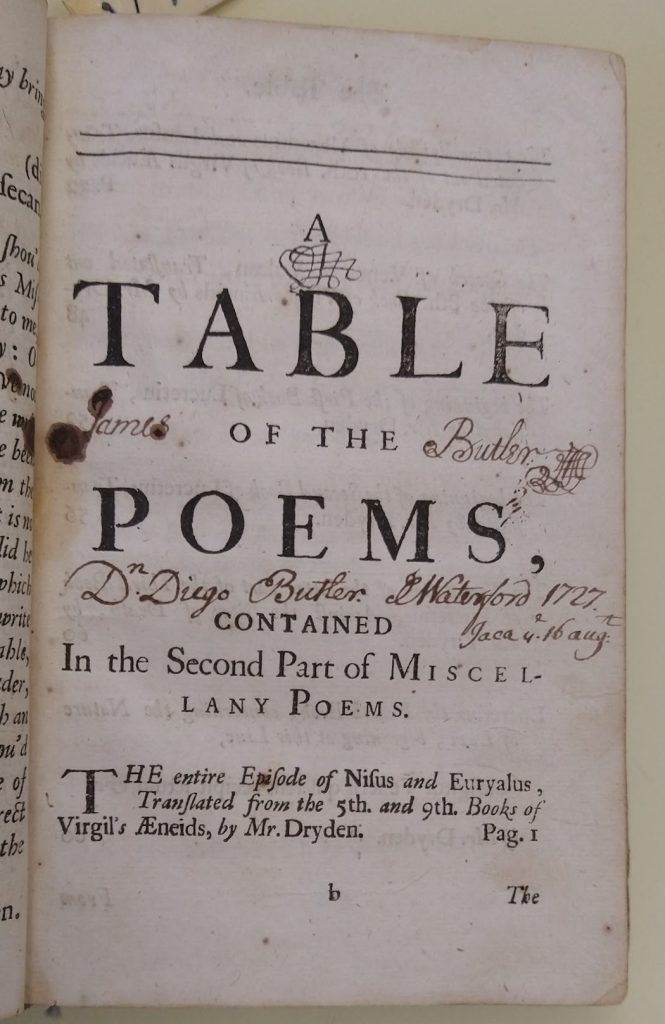This post is part of our Research Initiation Scheme for 2022-2023.
On Friday 10th March 2023, Dr John Stone (Serra Hunter Fellow in English Literature, Universitat de Barcelona) delivered a seminar about his latest research on diasporic populations in Spain between 1640 and 1808 and their libraries, particularly English language dramas and poetry.
Dr Stone opened the seminar by introducing us to the diasporic populations he would be focusing on in the paper. A diaspora refers to a network of ethnically and linguistically related peoples who are often geographically separated from one another. Dr Stone referred primarily to the communities of British and Irish immigrants, mainly Catholics, who were forced from the newly Protestant Great Britain following the reign of Queen Elizabeth I and moved to Spain. They became “islands of English culture”, in Dr Stone’s words. Books and other literary works in their native tongue acted as tools to preserve and further their cultural heritage in a foreign nation.
These communities were incredibly close-knit, and the solidarity between their members was evidenced in the work of the Royal Scots College, a seminary founded in Madrid in 1627. As Dr Stone explained, ordinary families could not import books into Spain. The Scots College, however, had a licence to import almost any text they wanted, and so would take requests from British and Irish diasporic communities to provide them with this connection to their natal land.
Another important institution that Dr Stone drew our attention to was St Albans, or the Royal English College based in Valladolid. After the 1770s and 1780s, the Spanish Jesuit clergy were no longer in control of the seminary, and more and more volumes of English drama, literature and poetry can be seen to have been imported during this period.
The popularisation of English language material in these institutions was mirrored by an increase in volumes dispersed amongst the general population. For example, a collection of English language works was found belonging to a Nicolás Blanco from the Canary Islands, containing a mixture of periodicals, biographies and books on history and geography. Blanco’s English family name was “White” and the extended family, in Cádiz and Tenerife, had roots in Waterford and Dublin.
These volumes were often bound after their arrival in Spain and were “mixed” – containing works by multiple authors and of multiple different genres – which Dr Stone suggested were more likely aimed at non-native speakers rather than the diasporic populations, who may have had access to these volumes decades earlier through the Royal Scots and English colleges.

Dr Stone illustrated how these volumes were then passed down through generations through images of the inside covers containing inscriptions from the various owners, such as a copy of Dryden’s poetry being passed from James to Diego Butler (likely father to son). Another interesting point that Dr Stone raised was how the various texts contained within these volumes would all have been published in either the same place or at the same time, implying that they were all purchased in a rush – for example, as the family passed through an area where they were available – rather than having a connection to a specific author.
Dr Stone´s seminar was a fascinating and informative session on a topic I had previously never considered in depth, and especially important in our digital age where resources for every language are available at the press of a button. It is easy to forget the struggles of the diasporic populations of the past to access books in their own tongue.
Report by Sarah Kirkpatrick, final-year undergraduate in Common and Civil Law with Hispanic Studies